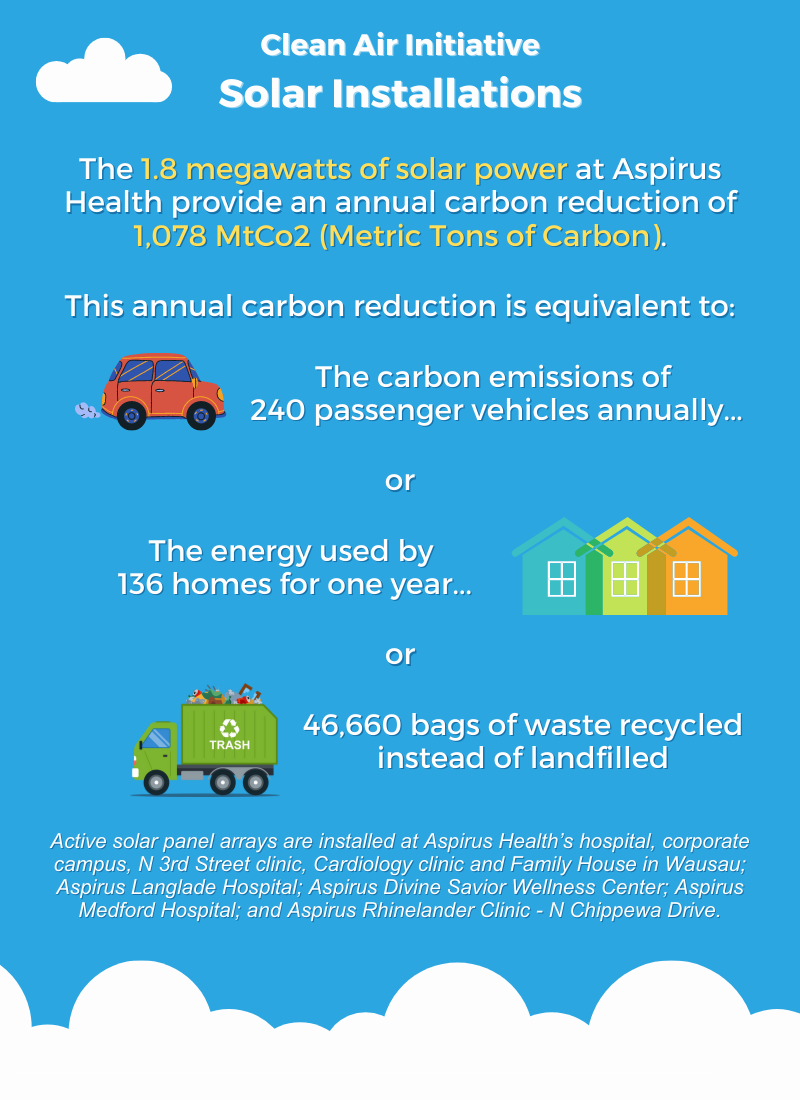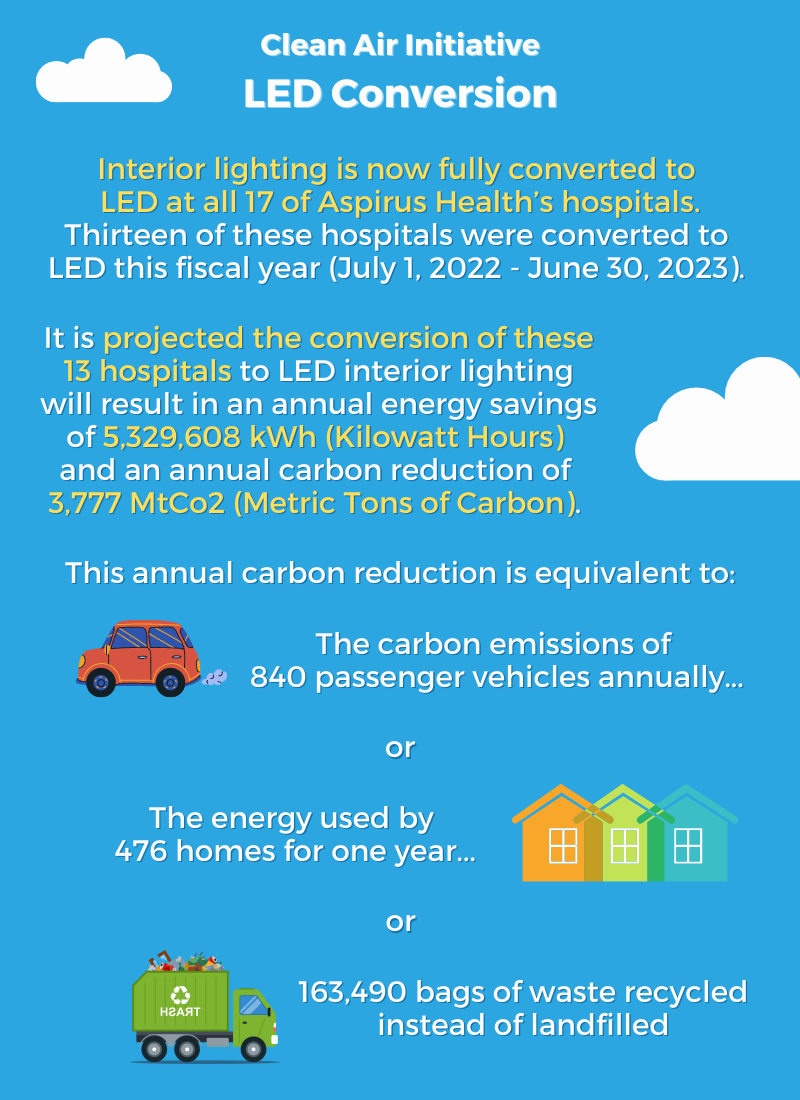Our lungs need clean air to stay healthy. That’s why
it’s important the air we breathe is free of pollution. Each May, the American
Lung Association (ALA) celebrates Clean Air Month to educate people about the
impact clean air can have on their lives.
Air pollution can
result in rises in asthma attacks, heart attacks, hospitalizations for people
with COPD, infant death, respiratory infections and strokes. The ALA reports it
can also raise the risk for asthma, COPD, certain cancers, diabetes, dementia and
fertility problems.
“At Aspirus Health, we
recognize the impacts of poor air quality on our communities, patients and team
members,” said Andrew Miller, Director of System Facilities Management and
Security. “We are committed to reducing our carbon footprint by implementing
sustainable programs and building improvement initiatives. These initiatives
will improve air quality and overall health both now and into the future.”
Since rolling out its
sustainability initiative in 2018, Aspirus Health introduced programs to reduce
its carbon footprint to support community health and improve air and water
quality. Aspirus also instituted efforts to conserve energy and to align with
best practices in the health industry to be a community leader for socially
responsible business operations.
Solar installations
One clean air
initiative at Aspirus Health is to use clean, renewable solar energy. To date,
Aspirus has installed 1.8 megawatts of solar electric panels across its
locations. These solar panels use the sun to create electricity, which is used
to help power the buildings where they are located.
Unlike natural gas and
coal used for generating power, solar energy emits no pollution, produces no
odors, releases no chemicals and uses no water. Solar is the cheapest and
cleanest form of new energy generation at the power plant level.

Most recently, Aspirus
installed solar panels on the roof of its Aspirus
Wausau Clinic - N 3rd Street in downtown Wausau, which opened in November
2022.
Built with a
commitment to sustainability, this clinic also features GREENGUARD-certified
furniture and healthy interiors designed to ensure clean indoor air as well as
geothermal heating and cooling, and outdoor elements such as permeable pavement
and landscaping with native plants that help filter pollution from rain,
stormwater runoff and melting snow.
LED conversion
Another ongoing clean
air initiative at Aspirus Health is the conversion to LED lighting across its
hospitals in Wisconsin and Upper Michigan. LED lighting uses less energy than
traditional lighting while also requiring fewer lights to achieve the same level
of brightness. Less energy use translates to fewer greenhouse gas emissions.

Aspirus Health’s solar
panel installations and LED conversion initiative will help the health system
reach its goal of reducing its carbon footprint by 80 percent by 2030.
Protect yourself
- Help protect yourself
from air pollution and its impacts by:
- Knowing the daily air
quality index of your area.
- Taking precautions
when air quality is not safe for your health, including staying indoors,
closing windows, using air filters and not smoking.
- Not exercising next to
busy roads to avoid contact with car exhaust.
- Eliminating bad air
from inside your home by keeping it mold-free, cleaning often to avoid dust
mites, using cleaning products with lower amounts of volatile organic compounds
(VOCs), ensuring fuel-burning appliances are vented properly, testing your home
for radon, not smoking, avoiding secondhand smoke, and opening windows to bring
in fresh air when outdoor air quality is safe.